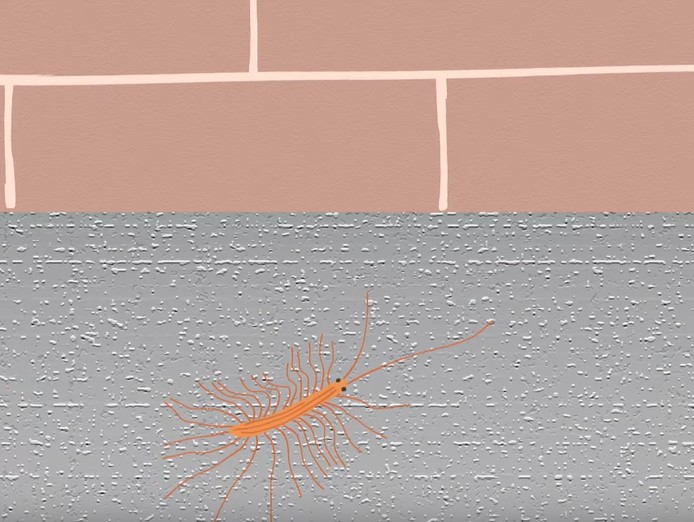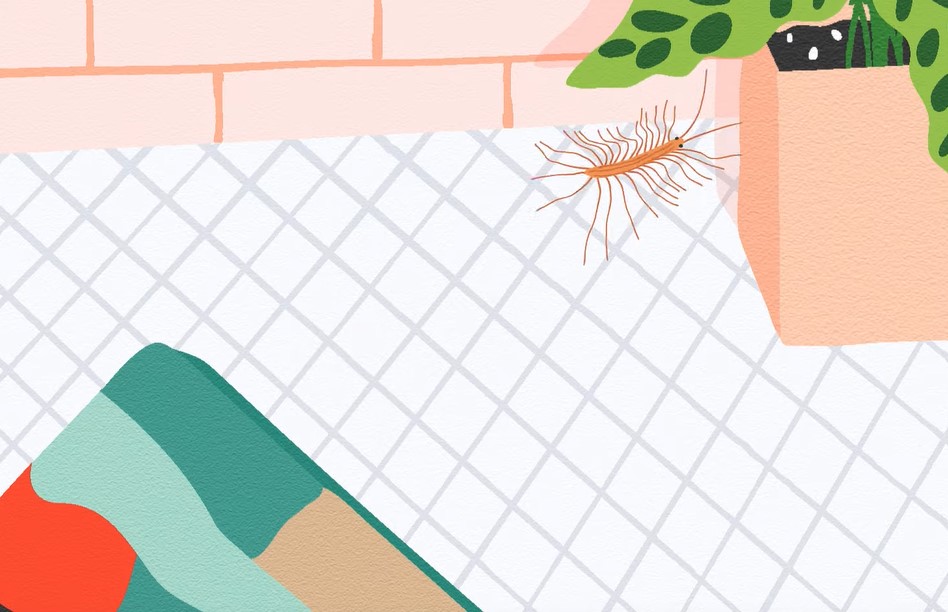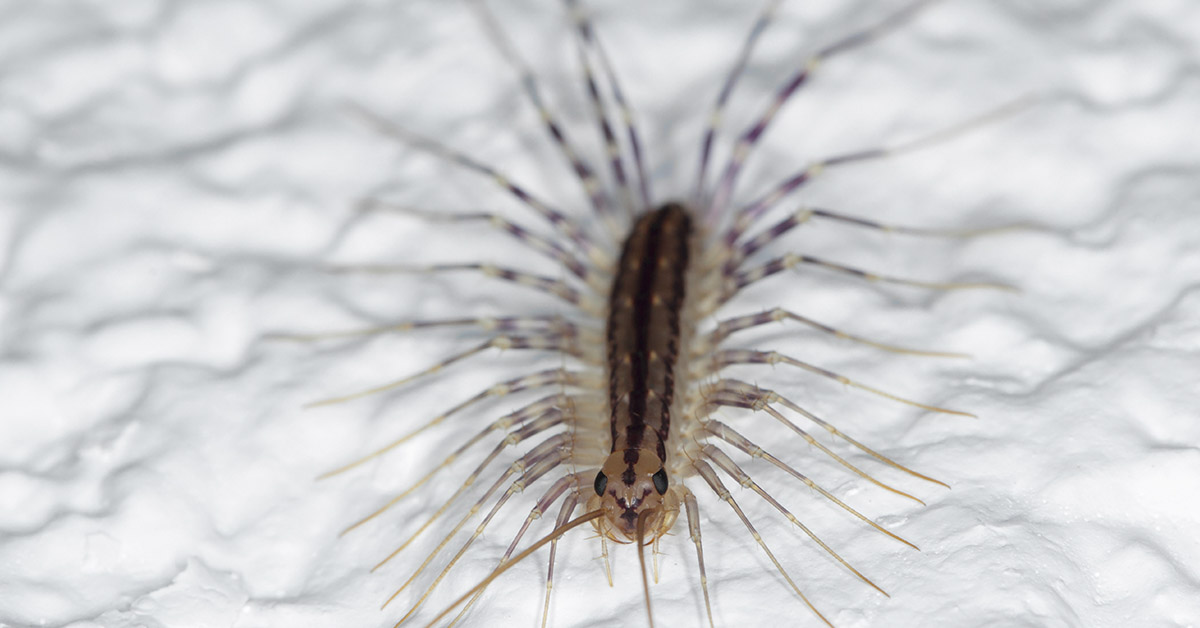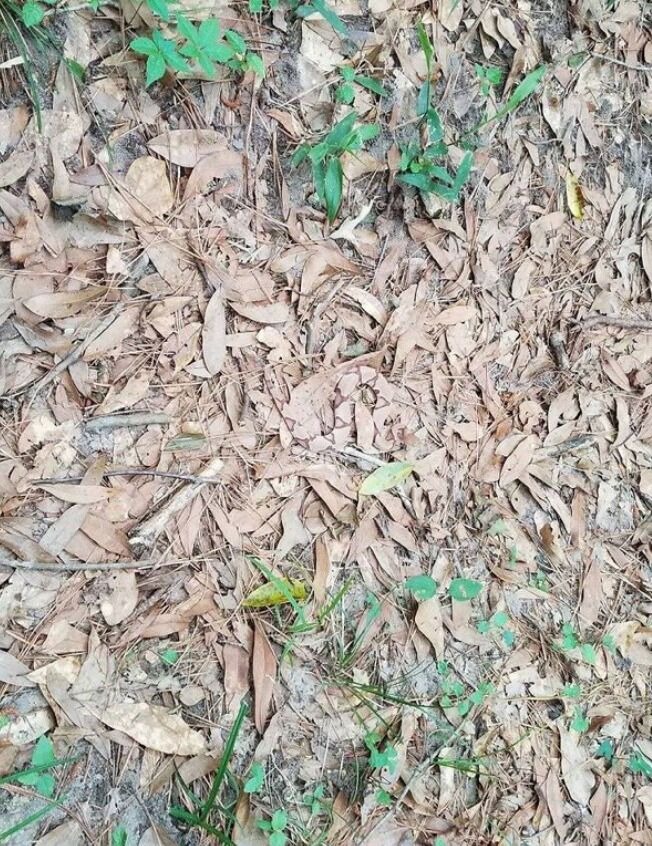House centipedes are a common sight in many homes, and while they may look intimidating with their 15 pairs of legs, it’s important to remember that they are actually helpful creatures. Instead of reaching for a shoe or magazine to eliminate them, it’s worth considering the advantages of having house centipedes around.
Natural Pest Control
One of the biggest benefits of house centipedes is their ability to control other pests in your home. They prey on a variety of bothersome insects such as termites, cockroaches, spiders, silverfish, moths, carpet beetles, and flies. Using their powerful legs, they snatch their prey and inject them with venom. This natural pest control method helps to keep your home free from unwanted visitors without the need for harmful chemicals.

Not only do house centipedes help eliminate other pests, but they also do it without leaving any unsightly webs or nests behind. They are active hunters that work tirelessly at night to keep your home pest-free.
Harmless to Humans
Despite their somewhat frightening appearance, house centipedes are completely harmless to humans. Their bites may cause a mild sting similar to a bee sting, but they pose no real danger. In the rare event that you are bitten, treat the area with cleaning, antiseptic, and ice to alleviate any discomfort.
Contrary to popular belief, house centipedes do not carry or spread diseases. They also refrain from causing any damage to clothes or furniture. So there’s no need to be alarmed if you spot one scurrying across your floor.
Preventing Centipede Infestations
While it’s beneficial to have a house centipede or two in your home, it’s still best to minimize the presence of bugs altogether. Centipedes typically seek shelter indoors during cold weather or in moist areas such as basements or under leaky sinks. To prevent them from making themselves at home, follow these simple steps:
- Address any sources of excess moisture, such as using a dehumidifier or installing a fan in the bathroom. Also, ensure there is no debris causing leaks into the walls.
- Check for any leaks under sinks and in the basement. Make sure shower and sink drains are functioning properly and not creating puddles.
- Seal cracks and openings around doors, windowsills, corners, as well as where pipes and electric lines enter your home. This will not only prevent centipedes from entering but also deter other pests that serve as their food source.
- Maintain the integrity of screens and weatherstripping around doors and windows. Regularly clean away spiderwebs and check crawlspaces and basements for nests or signs of cockroaches.
- Ensure your dryer vent is tightly sealed to keep pests out. Use traps, cedarwood spray, vinegar, or baking soda in areas prone to pests. If needed, seek assistance from a pest control company.

If you happen to come across a house centipede, avoid squishing it with a tissue as it can create a mess. Instead, use a vacuum to capture it, dispose of the contents in a plastic bag, and discard it outside. Another option is to try diatomaceous earth, a powder that effectively kills indoor pests. Sprinkle it around doors, corners, cracks, and damp areas, wait 24 hours, then vacuum it up.
In the case of centipedes in your bathroom or sink drains, pour vinegar or bleach down the drain to deter them. For severe infestations, consider using insecticide spray or dust (following instructions) or consult a professional exterminator. While house centipedes can be helpful in hunting other pests, it’s understandable if you prefer not to have them in your homes.
By adopting these preventive measures, you can strike a balance between appreciating the benefits of house centipedes and maintaining a pest-free environment.






